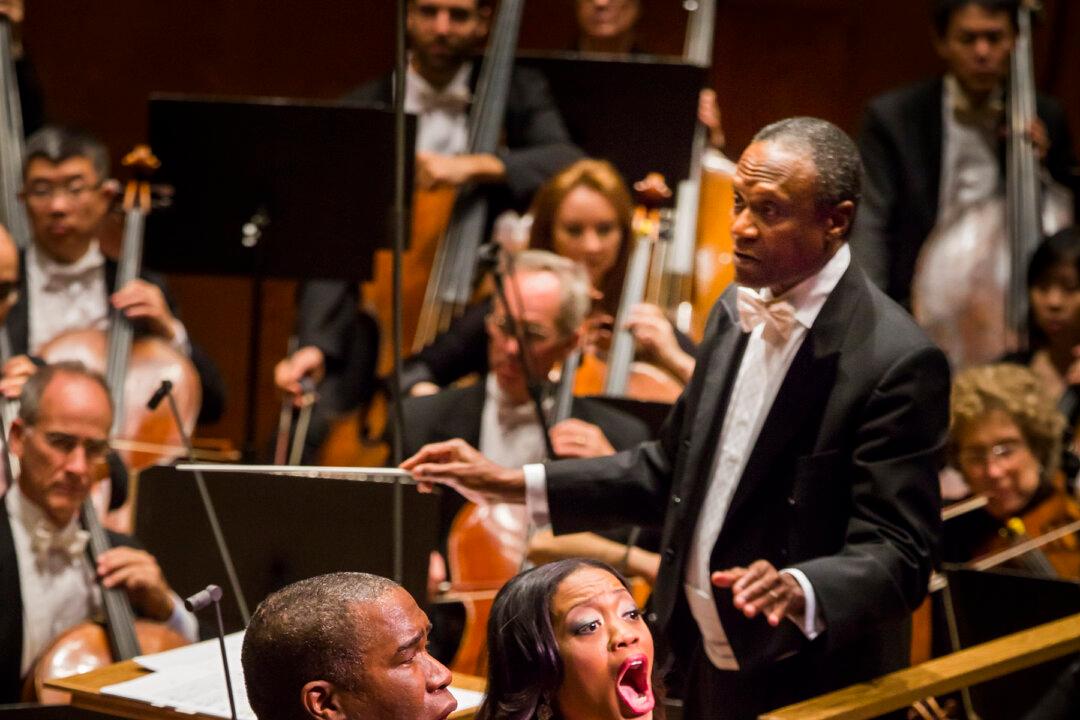NEW YORK—This year, October has felt like Black History Month at Lincoln Center. First, there was Robert Sims’s concert dedicated to the memory of Roland Hayes, the first African-American to sing with a symphony orchestra. Then later in the month, the New York Philharmonic began the series curated by its Artist-in-Residence Eric Owens.
The first concert at David Geffen Hall (formerly Avery Fisher Hall) was “In Their Footsteps,” a tribute to Marian Anderson, Betty Allen, George Shirley, and William Warfield, all of whom had appeared with the Orchestra. Shirley had acted as narrator at the Hayes concert and even sang a cappella a spine-tingling rendition of the spiritual “Were You There?” at the end.

Host, curator, and bass-baritone Eric Owen sings with soprano Laquita Mitchell while Thomas Wilkins conducts the New York Philharmonic during the first concert in the series, "In Their Footsteps." Chris Lee






